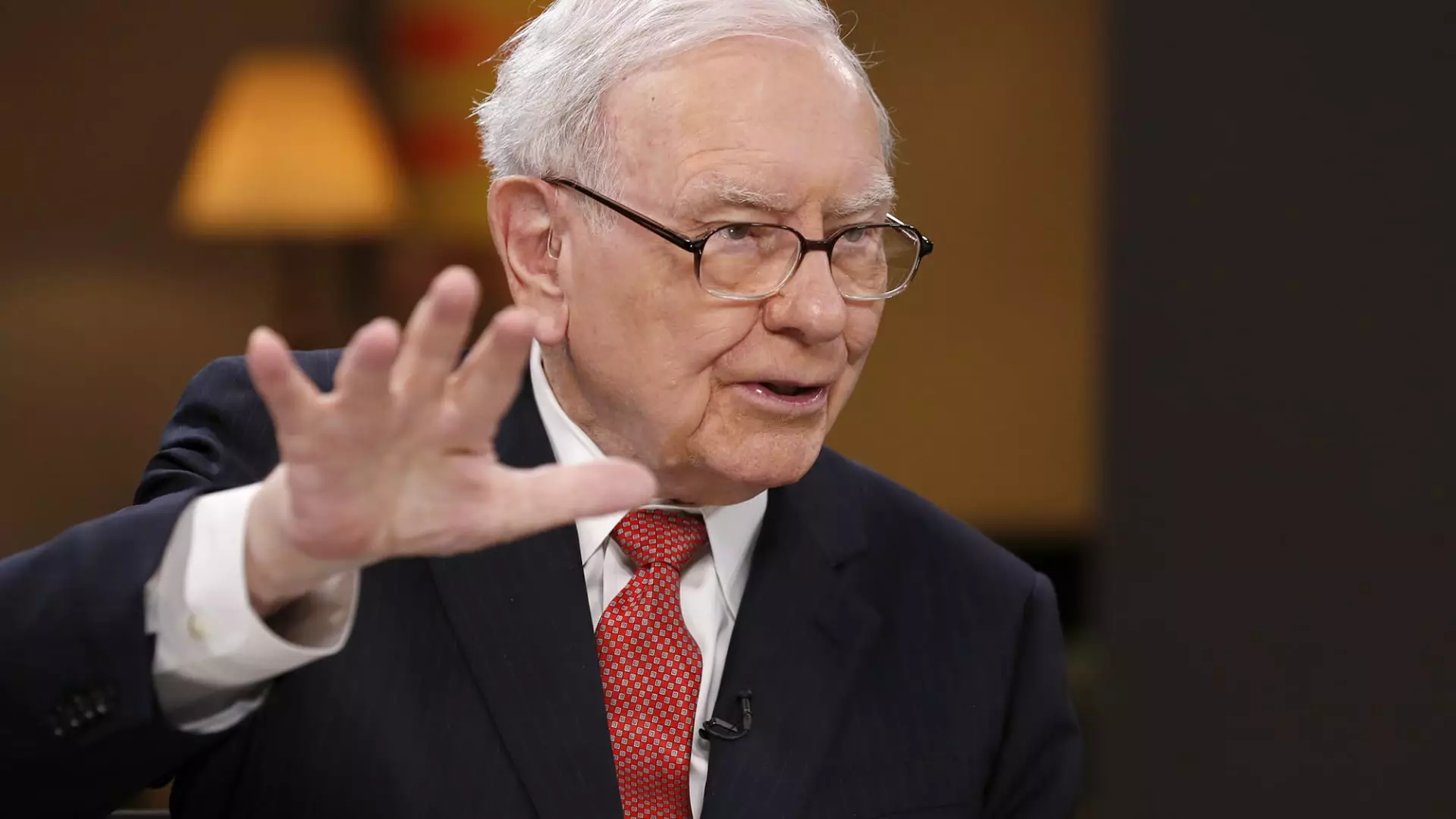Warren Buffett, widely celebrated as one of the greatest investors of all time, embodies a unique perspective on wealth and its implications across generations. As he approaches his mid-nineties, Buffett’s insights into philanthropy and inheritance have garnered attention, particularly as he continues to amass considerable wealth, now valued at approximately $150 billion. Rather than perpetuating a dynasty focused on familial wealth, Buffett has made deliberate choices that signal a profound commitment to philanthropy over progeny. By designating independent trustees to oversee his charitable endeavors, Buffett underlines his philosophy that wealth should not merely be dynastic; it should foster societal good.
The crux of Buffett’s argument against creating dynastic wealth lies in its potential drawbacks, which he believes can impede personal growth and complicate familial relationships. He argues that exceptional wealth can lead to uncertainties regarding its future distribution, a concern shared by many thoughtful philanthropists. His historical commitment to giving away 99% of his fortune reflects a belief that wealth should not be insular, locked away only for the benefit of one’s immediate descendants. Instead, he posits that it is the duty of the wealthy to enhance societal welfare and to prepare their heirs to handle wealth responsibly.
In a recent letter, Buffett articulated his concerns while discussing the trustees appointed to administer his philanthropic resources, thereby potentially extending his legacy beyond his immediate family. He has entrusted this responsibility to individuals he deems fit, emphasizing a trust that he has cultivated through years of observation of his children and their values. At ages 71, 69, and 66, his children stand at crucial junctures in their lives where expertise in wealth management converges with philosophical understanding. However, he acknowledges that their successors may not be as reliable or competent, expressing a cautious optimism that his children will indeed disburse his wealth wisely.
While Buffett’s decisions indicate a level of trust in his children’s abilities, he is acutely aware of the unpredictability that future generations may pose. His adamant stance against creating a family wealth empire serves as a reminder that advantages derived from accumulated wealth must be tempered with responsibility and foresight. This cautious optimism, however, is not rooted solely in familial trust; it is also cultivated through a robust philanthropic education that he has intentionally overseen, allowing his children to engage actively with the mechanisms of charitable giving.
Buffett’s reflections also call into question the traditional notions of wealth and succession. In an era where funding educational institutions, social causes, and public health is paramount, the responsibility of wealth creators extends beyond personal legacy towards societal improvement. The historical lens through which wealth was regarded — primarily as a means to secure familial security — appears increasingly outdated against the backdrop of modern philanthropy. His actions are not merely about redistributing wealth but rather about redefining a legacy that prioritizes ethical considerations over financial entitlements.
The operational ethos of Buffett’s philanthropy reflects a fundamental belief in the importance of accountability and integrity. Having built one of the most diverse and successful conglomerates in the world with Berkshire Hathaway, he is well aware of the profound influence of leadership and stewardship in managing wealth. By operationalizing philanthropy through independent trustees, Buffett appears to acknowledge that societal needs and values can evolve, and thus the means of addressing these needs must too.
As Warren Buffett contemplates his exit from the world of business, his actions serve as a paradigm for contemporary philanthropists and affluent individuals. His ideology calls for a shift in how wealth is perceived and distributed, advocating for a societal rather than familial focus. In doing so, he lays a foundation not for a living dynasty but for a more equitable future where wealth is a means to foster growth and change, rather than a source of contention. The broader implications of his philosophy suggest that future generations of wealthy individuals have a responsibility to approach their resources with mindfulness and wisdom, ensuring that extraordinary wealth leads to extraordinary positive change. Buffett’s vision compellingly illustrates that the legacy one leaves behind can be more impactful than the wealth itself, and perhaps this is the most important lesson of all.

Leave a Reply